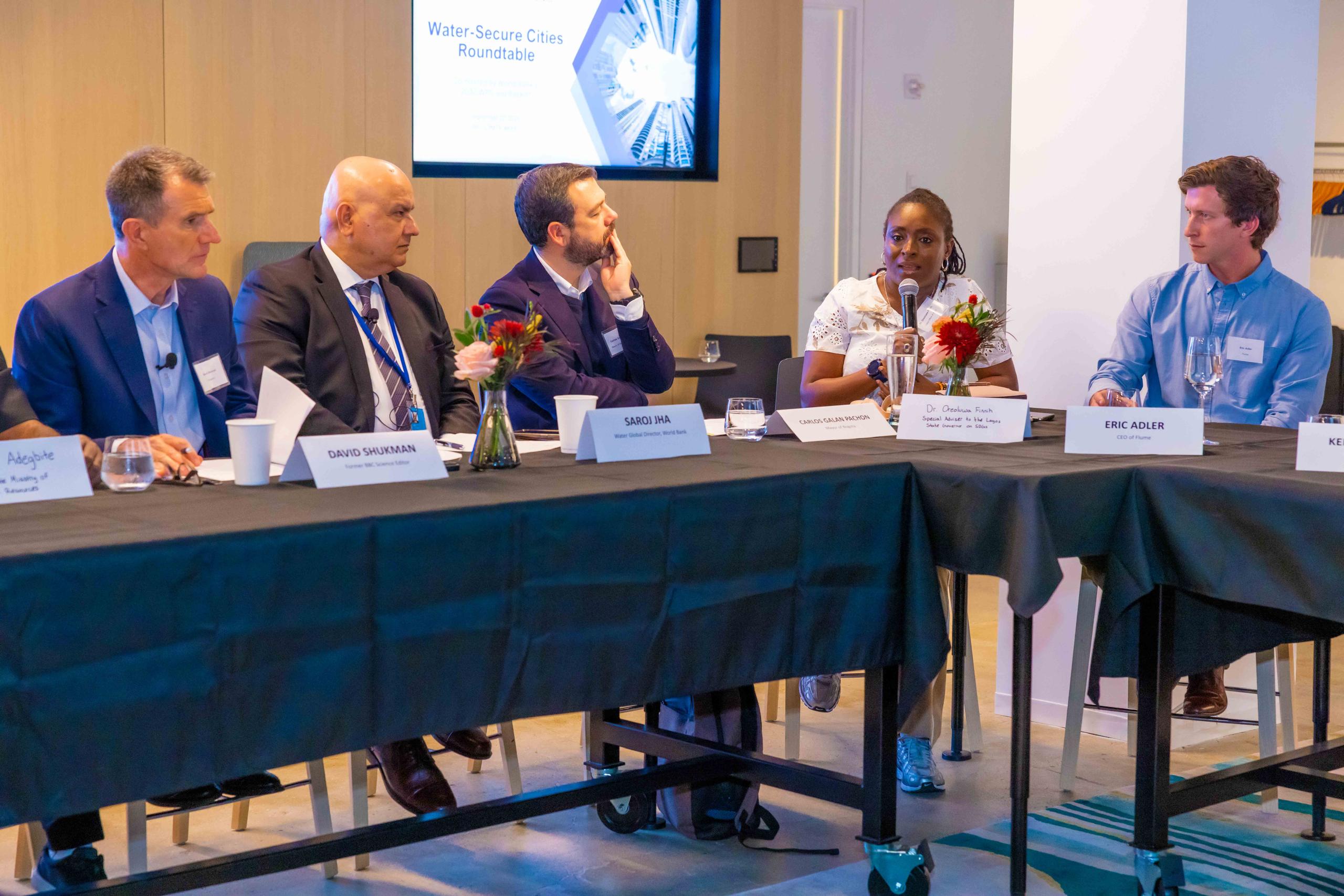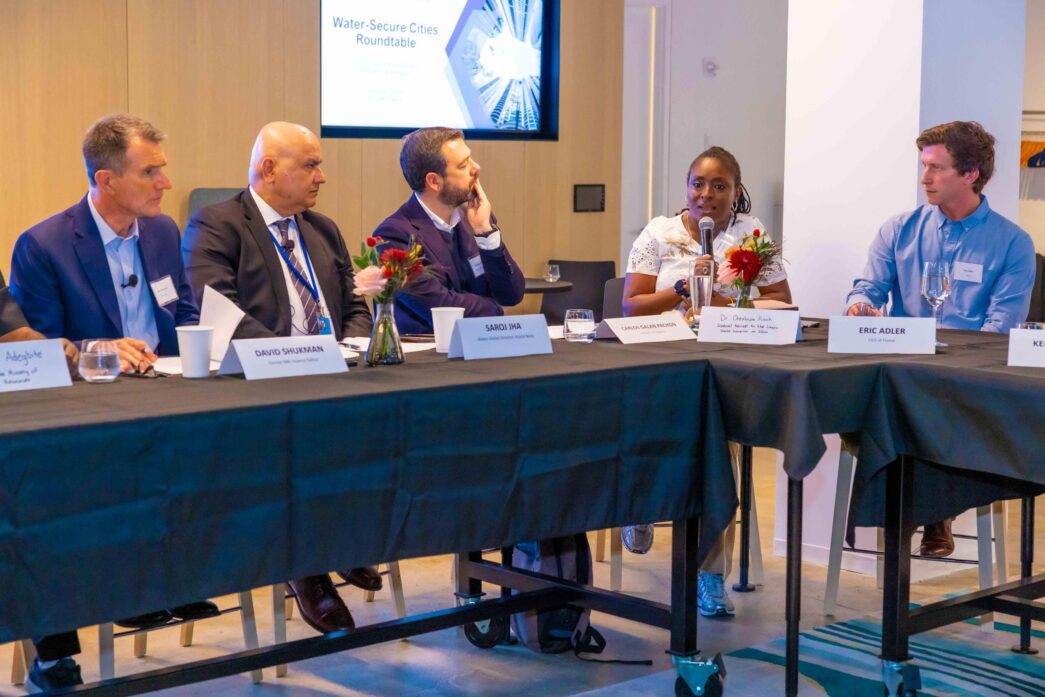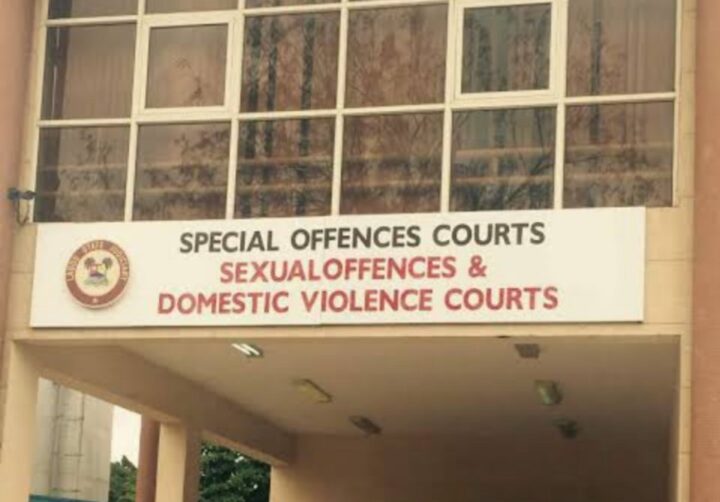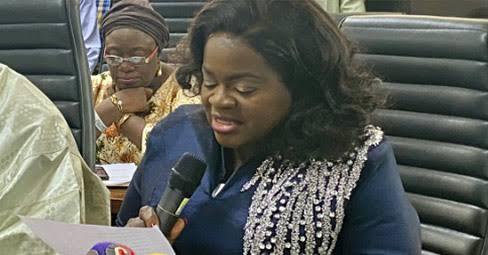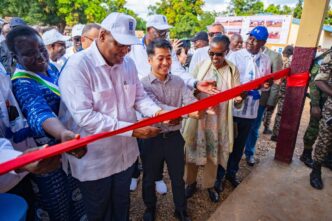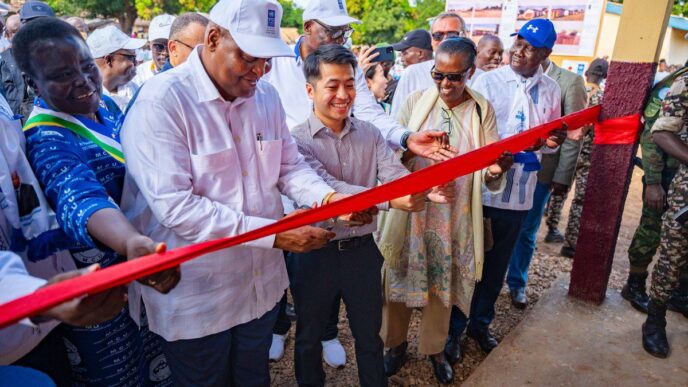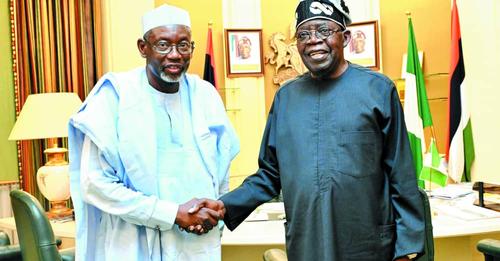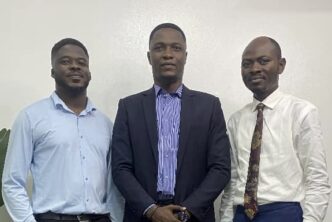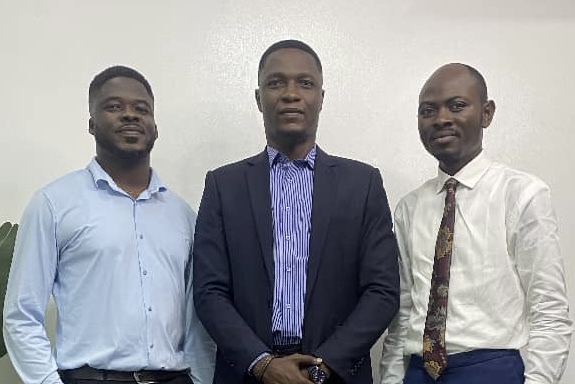Oreoluwa Finnih speaking at one of the side events during UNGA79
The Lagos state government had a strategic attendance at the 79th session of the United Nations General Assembly (UNGA) held in New York, United States, where Oreoluwa Finnih, special adviser on sustainable development goals (SDGs) to Babajide Sanwo-Olu, Lagos governor, led engagements at key side events, discussing challenges and projecting prospects of the state’s sustainability vision. WALE AJETUNMOBI, the governor’s senior special assistant on media in the state’s team to the UN Assembly, writes.
Harsh weather, environmental degradation, rising poverty and economic inequality are all empirical evidence pointing towards the reality of climate change. But, inaction to address these existential threats will hurt the planet and could cost the global economy $178 trillion by 2070.
This was the submission of Oreoluwa Finnih, who gave a keynote speech at Dialogues and Action Plans event tagged: “The Future of Work”, held as a side event during the 79th United Nations General Assembly (UNGA) in New York, United States.
Global efforts to reverse the trend have spurred a new culture of work – the green economy, which, Finnih said, could potentially boost the global economy by $43 trillion over the next five decades if fully transitioned.
Advertisement
In her address titled: “The Nexus Between SDGs, Green Economy and The Future of Work”, Finnih said Nigeria remained one of the developing nations being affected by the devastating impacts of climate change, stressing the deliverable objectives outlined in the SDGs served as universal agenda to achieve comprehensive sustainable development by addressing the challenges confronting the planet and people.
The evolving culture of work, she submitted, was in line with the outcome of SDGs which aims to reconfigure the global economy to a green model – an economy in which humans can thrive without harming the planet.
Finnih called for collective action that would channel a sustained investment into green assets and ancillary infrastructure that can aid transitioning to a business model that would be kind to the environment and bring about social equity in human communities.
Green economy, she said, would not only ensure sustainable consumption pattern that would stem depletion of natural resources, but also will activate reordering of nature’s ecosystem.
Advertisement
She said: “Yes, the future of work is green. The green economy shapes the future of work. A green economy is one in which humans thrive without harming the planet. It is an economy that is kind to the environment and signals social equity. It is a world where human population lives better and embraces sustainable consumption patterns that do not deplete natural resources.
“Putting it more practically, a green economy is characterised by stakeholder investment in assets, infrastructure and economic activities that improve the triple bottom line: people, planet and profit. A green economy will catalyse clean transiting options, renewable energy, sustainable agriculture systems, a circular economy, green buildings, green finance, environmental awareness and green jobs. These investments reduce carbon footprint and pollution, enhance energy and resource efficiency, preserve biodiversity, and ensure the physical and psychosocial well-being of humanity.”
Finnih said the global labour market was already experiencing a shift towards the green economy where jobs and skill requirements were being reconfigured to be SDG-compatible.
In 2023, she said the World Economic Forum confirmed the growth of green labour market, stating that the United States green job market was expected to climb to about 24 million jobs by 2030. Similar pattern, she said, was being noticed in Europe where energy sector would shift significantly towards solar source by the end of the decade, creating about 4 million green jobs.
Advertisement
Finnih noted that industries had started to evolve SDG-compliant business models, with various organisations becoming advocates of sustainability.
“Non-green jobs will experience an unavoidable contraction in labour demand, which implies a complete phase-out or sectors growing increasingly green. The inevitably repercussions may include a high unemployment rate, low standard of living, increased inequality and a low-gear economy.
As a nation, we must be more intentionally prepared. Nigeria and other developing nations must kick-start an adoption of sustainable operations across industries and sectors. The task before us is to drive an industry-wide revamp that places us on par with global standards,” she said.
SUSTAINABLE FINANCING KEY TO ADDRESSING SHORTFALL IN LAGOS WATER ASSETS
Advertisement
Water crisis in Lagos – Nigeria’s largest city – was comprehensively assessed at a forum attended by various international partners who showed their willingness to commit technical assistance and investments towards ramping up infrastructure and supply services on a set of criteria.
The need to foster collaboration and harness strategic investment to address clean water shortage and inadequate sanitation in populous cities became the crux of the discussion at Water-Secure Cities Roundtable, a side meeting in the 79th UNGA session.
Advertisement
The event, which was co-hosted by the World Bank’s 2030 Water Resources Group (WRG) and Reckitt, had in attendance the Lagos State Government’s team led by the Special Adviser on SDGs, Dr. Finnih.
The 2030 WRG is a multi-donor trust fund managed by the World Bank’s Global Water Practice that advances the role of the private in addressing global water insecurity and climate change impacts together with government and civil society.
Advertisement
Finnih told stakeholders at the roundtable that Lagos – a coastal city – daily battled a significant shortfall supplies of clean water, stressing that the existing assets could only support supply to less than half of the State’s 22 million residents.
She said population expansion occasioned by migration to the city had raised the demand for potable water and sanitation facilities, thereby increasing the pressure on the existing infrastructure.
Advertisement
To address the shortages, Finnih said the effort would require a holistic approach that would channel a focused financing in production assets and distribution networks in order to restructure the water supply market and raise efficiency.
She said: “Going by the assessment of current water supply capacity in Lagos, there is a clear indication that we have a huge shortfall in meeting the demand of the population. The requirement for water in Lagos is about 510 million gallons per day. We need partnership to accelerate our fulfillment of the 17 Goals of the SDGs, by ensuring that we put proper structure in place.
“We need to build new purification systems at the production end of the market. We to have rehabilitate the reticulation facilities and integrate technological solutions to regulate consumption and waste. These inadequacies can only be resolved if we have committed partners who are ready to these observed challenges to sustainable social and economic opportunities.”
Permanent Secretary, Office of Drainages in the Ministry of the Environment and Water Resources, Engr. Olakunle Adegbite, observed the inadequacies experienced in water supply had led to the depletion of underground water, as residents found alternative sources of water.
Adegbite said the first layer of the State’s aquifer had dried up, resulting from proliferation of boreholes in Lagos. This, he said, posed a threat to the State’s underground water composition.
He said Lagos Government had responded to the situation by improving the governance structure of the State’s water management sector.
“This year, we have rolled out the WASH Policy which is intended to expand the role of private sector in the provision of clean water. It is obvious that the government cannot do everything alone. We have set the policy to ensure accountability, which will catalyse private investment in this sector,” Adegbite said.
Global Director for the World Bank’s Water Global Practice (GP), Saroj Jha, said adequate provision of clean water was key to solving global poverty, noting that developing countries spent an average of 1.2 per cent of annual budget on water.
Jha said African countries’ spending on water was a far cry from the global benchmark, making the challenges more difficult to overcome.
“There will never be end to water shortages without active participation of the private sector. Government must ensure that private sector is involved in every discussion on water supply and sanitation,” the World Bank chief said.
Other discussant at the roundtable included founder of Wellbeing Foundation Africa and former First Lady of Kwara State, Mrs. Toyin Saraki, and Executive Vice President of Reckitt in North America, Eric Gilliot, among others.
INVESTMENT OPPORTUNITIES
The Water-Secure Cities Roundtable session was followed by a private meeting with the Lagos State Government team in which talks around possible investments were held with a group of investors.
At the meeting, the parties engaged in conversation around modalities for bringing private capital and low-interest financing to finance Lagos State’s water sector in order to increased output.
There were also discussions on integration of technological innovation to solve existing inadequacies and optimising the assets.
Future-proofing Lagos health care system: How Sanwo-Olu is working towards the goal
Lagos State, at the Climate Week event organised for C40 Cities in New York City, shared its progress on how it has raised manpower, service efficiency and productivity across its health sector in order to enhance the system’s adaptability to changing climate threats.
The closed-door roundtable, hosted by Reckitt and Bupa during the 79th UN Assembly, brought together city leaders and key organisations to explore the role of public-private collaboration and rethink healthcare delivery to protect people in a changing climate.
Finnih reeled out a data-backed report detailing Lagos’ resilience plan for the state-controlled health facilities. She, however, pointed out unabated brain drain had impacted negatively on the health care delivery in Lagos, raising the State’s vulnerability to severe challenges.
She said the State-owned General Hospitals alone generated 7 million contact data, aside data collected from Primary Healthcare Centres (PHCs), tertiary health institutions and private hospitals.
Inadequate manpower and capacity, Finnih said, has led to prolonged response time and disruption in health coverage, limiting access to care.
Lagos Government, the Special Adviser said, is on the verge of establishing a special university for the training of professionals in medical sciences to shore up capacity and raise resilience across the health sector.
“Lagos is a sub national with 28 secondary hospitals and one Teaching Hospital. The second Teaching Hospital is owned by the Federal Government, with couple of other tertiary health facilities within Lagos boundary. The approach we adopt in raising efficiency and building resilience is to partner with the private health providers and incentivise them to thrive in order to bridge the shortfalls in the sector.
“Part of the crisis we face within the system is human resources. We yearly train about 250 doctors in both Teaching Hospitals, with 75 per cent of the number lost through brain drain. Recognising these challenges, Lagos State Government is establishing a dedicated university for all medical sciences for the purpose of training manpower to shore up the existing capacity in health care. This will raise the number from the average of 200 to over 1,500 trained manpower yearly.
“We have also focused on community health, where the government has been committing resources in training community health officers for immediate and long-term resilience plan. It is cheaper to train a community health officer; the impact of this important cadre in community health response is far reaching, given their ability to accelerate education, immunisation and prevention of diseases,” Finnih said.
She added that both the public and private sectors would benefit from the initiative, noting that the private health providers would have a pool to recruit competently trained professionals. The data generated from the intervention, she disclosed, would help the government take informed decision in its response to protect people from the threats posed by climate change.
She said the transition to green-compliant infrastructure was part of resilience plan, which had enabled the Lagos State Government reduce the amount of atmospheric carbon, thereby improving air quality.
Finnih said the recent data collected by the State showed residents had generally enjoyed better air quality, except those living in areas where constructions were being carried out.
To mitigate pollution, she said the government had embarked on planting 20,000 trees by 2025 that will act as natural absorber of pollutants.
“For every tree removed because of road construction, three trees will be planted to rebalance the ecosystem,” Finnih said.
Cities that also presented their resilience plan included New York City, Rio De Jenairo and Madrid, among others.
Stakeholders agreed that cities must lead the action against climate change to contain emerging threats and pressure on urban health systems.
At the discussion, leaders compared notes and exchanged ideas on preventative healthcare, while exploring new strategies to unlock climate-resilient health care and ways to reduce carbon emission.
LAGOS CHOOSES TO LEAD
The Special Adviser on SDGs reassured stakeholders at the global forum that the Sanwo-Olu administration remained focused on addressing the critical environmental challenges and advancing sustainable initiatives. Her office, she said, had been spearheading the State’s mission towards ensuring that the path to 2030 SDGs deadline left no one behind.
The State Government’s steadfast commitment to sustainability, Finnih posited, is reflected in every policy being enacted and initiatives undertaken. She explained that the State would leverage community engagement and inclusion, noting that a sustainable future is one collectively built by everyone regardless of social strata.
She said: “The world as we know it is undergoing profound changes. Climate change, technological advancements, and shifts in global dynamics are redefining what it means to be a thriving society. In this moment, Lagos is faced with a choice: to stand still and let these changes overwhelm us, or to rise to the occasion, to innovate, to adapt, and to lead. By our actions, Lagos is choosing to lead.
“We have been championing ethical business practices and social impact, with the understanding that our economic growth must go hand in hand with our moral and social responsibilities. We are also driving the conversation on sustainable finance, knowing that the investments we make today will determine the Lagos of tomorrow. We are committed to strategic planning, resource mobilization, and rigorous monitoring to build a more equitable, inclusive and prosperous Lagos.”
